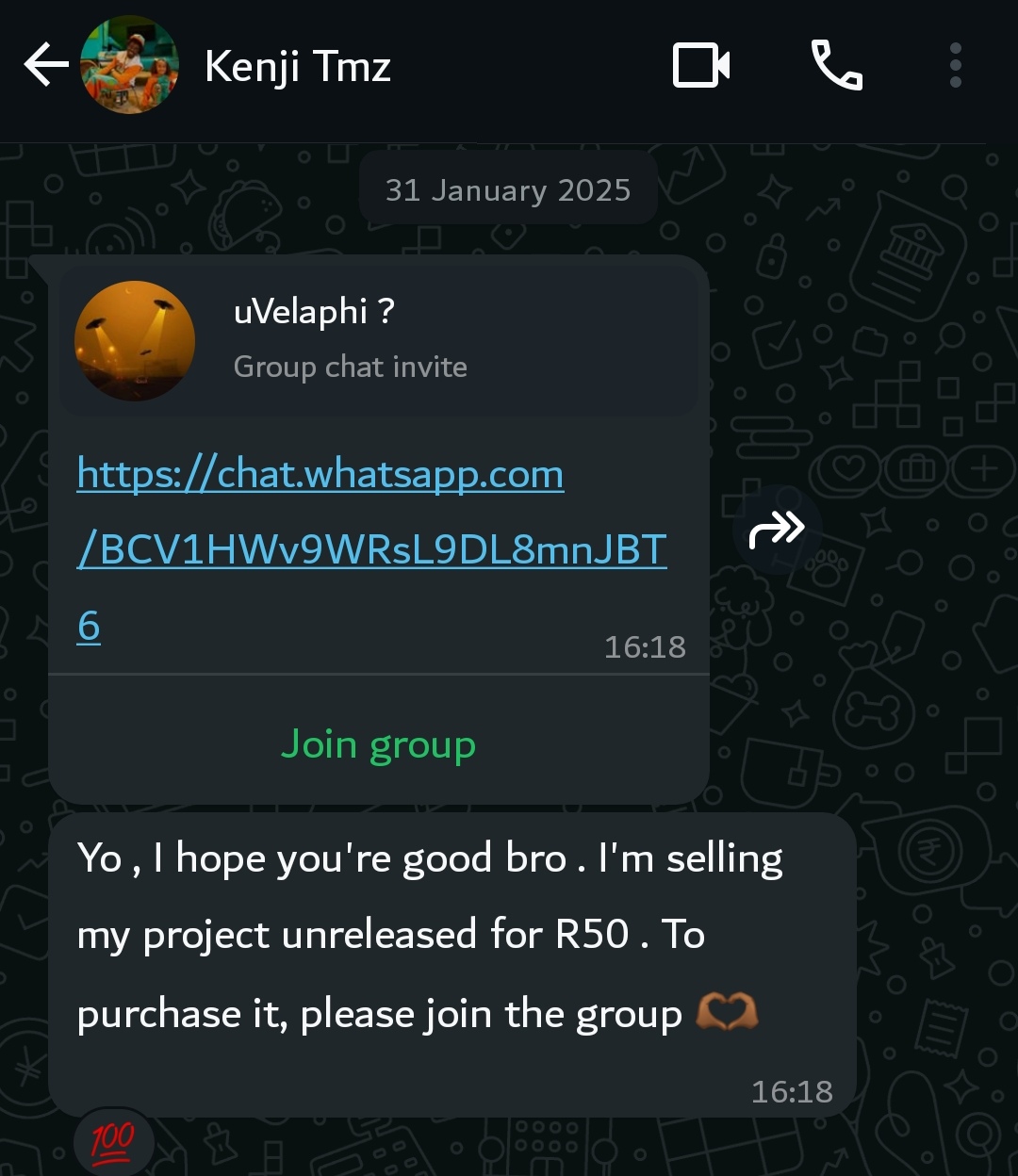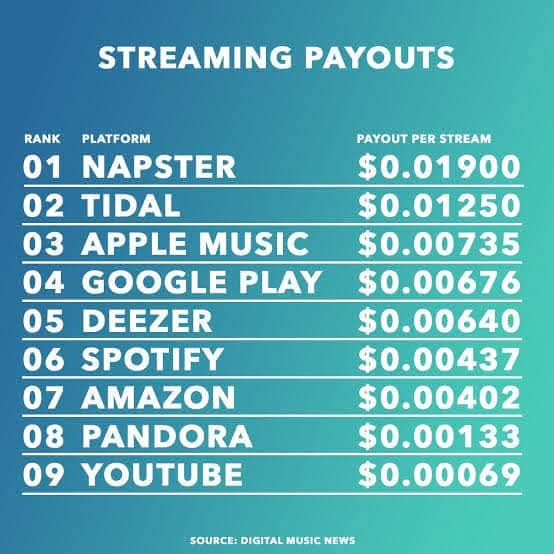Digital vs Streaming: What Side Do Upcomers See Themselves On?
LyleGhost
22 May 2025
Streaming platforms like Spotify, Apple Music, and YouTube have become the go-to for many listeners worldwide. But is streaming really the best path for up-and-coming artists?
In an age where music is at our fingertips and streaming platforms rule the industry, a new conversation is beginning to echo louder among independent and upcoming artists—is streaming really worth it? Or does the old-school idea of selling your music directly, even digitally, offer more value?
To get some perspective, I reached out to three respected voices from the Eastern Cape music scene: King Joe, Kenji Tmz, and producer Sykotiq. What started off as a casual conversation turned into a deep and honest discussion about the true value of music in today’s digital economy.
King Joe: "There’s No Money in Streaming, Bro"
I started by chatting with King Joe, a Hip-Hop artist from the Eastern Cape known for his authenticity and hustle. When I asked him about his take on digital copies versus streaming, he didn’t hold back:
“There’s no money in streaming bro, I sell digital copies.”
This wasn’t just a throwaway comment. King Joe made a bold move back in 2023—he removed all his music from streaming platforms entirely.
“I’ve made more money in these two years than I did in the seven years of streaming,” he told me.
He now uses YouTube strictly for music videos and relies solely on direct sales for income. For him, the shift has worked. He’s happier, more in control of his music, and finally seeing the value in his work reflected financially.
Kenji Tmz: "Buy My Project for R50 via WhatsApp"
Kenji Tmz, an artist hailing from Soweto-on-Sea in Gqeberha, has taken a grassroots approach to music distribution. Instead of waiting for platforms to do the work for him, he built a direct line to fans via WhatsApp.
In January, Kenji sent out a message that read:
“Yo, I hope you're good bro. I'm selling my project unreleased for R50. To purchase it, please join the group.”

He attached a link to a private WhatsApp group where fans could buy his music directly. This approach removes the middleman entirely. There are no platform fees, no algorithm battles—just artist and listener, one transaction at a time.
It’s raw, direct, and surprisingly effective. For upcoming artists without major label backing, Kenji’s method proves that digital hustle still pays.
Sykotiq: “Digital Is Money, Streaming Is Access”
When I asked respected producer Sykotiq (aka Musa) the same question, his answer provided a more balanced outlook:
“Digital copies is money. But streaming is access.”
Sykotiq believes the two models aren’t mutually exclusive. Instead, they can complement each other.
“I think it’s important to have both available. But start with a digital copy release first—maybe for two weeks—then release it on streaming.”
This model allows core fans to support the artist directly by purchasing the music first. Later, when the track is available on streaming, it reaches a wider audience who may not be ready to buy but still want to listen.
He also mentioned platforms like Bandcamp, which allow artists to set their own prices. This empowers creators to dictate the value of their work rather than leaving it up to the micro-pennies-per-stream payout structures of platforms like Spotify or Apple Music.
“This is why I miss the physical days,” Sykotiq added. “We used to move products.”
For him, the nostalgia isn’t just sentimental—it’s financial. Artists used to sell CDs hand-to-hand. Now, they fight algorithms for pennies.

Yahkeem Mavulakuvaliwe: “Have a Branded USB and Sell It”
Yahkeem Mavulakuvaliwe, presenter at TruFM and host of The Urban Exchange, added a powerful endorsement of direct sales during our conversation. His message was crystal clear:
“Peace King, look, streaming is just for you to have your music out there. Because artists barely make money out of that. So if you can have a printed branded USB that you can peddle and sell to people, that is a route that I would greatly suggest because no one is making money—especially independent artists—on streaming platforms.”
His advice echoes the spirit of the streets: make your music tangible, make it sellable, and make it yours.
The Industry Giants Weigh In: Snoop Dogg and Method Man
This debate isn’t limited to underground artists. Even industry legends like Snoop Dogg and Method Man have expressed their dissatisfaction with streaming.
At the 2023 Milken Institute Global Conference, Snoop said:
“I don’t understand how you get a billion streams and not get a million dollars.”
His statement hit hard. It shined a spotlight on how unfairly streaming revenues are distributed, especially when the platform and label often take the biggest cut.
Similarly, Method Man has said in interviews that while streaming is great for visibility, it's not financially sustainable for artists—especially those not backed by major deals.
These sentiments mirror what local artists like King Joe and Kenji are living through: streaming is not broken—it’s just not built for the artist.
The Core of the Argument
The fundamental difference between streaming and digital copies lies in value perception. With streaming, you get paid based on how often people listen. That might sound fair at first—but when you realize artists often receive less than R0.01 per stream, it quickly starts to look like exploitation.
On the other hand, with digital copies, an artist sets a flat price—say R10 or R50—and gets paid upfront. Whether that fan listens once or a thousand times, the artist already got their worth.
“Digital copies bring in the cash but that’s all,” I told Sykotiq during our chat. “It doesn’t matter how many times a person listens to your song because they already purchased the copy.”
His response was practical:
“That’s why you get both. So your core fans can own.”
What This Means for Upcoming Artists
For newer artists, the digital vs streaming debate isn’t about preference—it’s about survival. Streaming can feel like shouting into a void. You might get a few plays, but real income? That takes either viral success or years of grinding.
Digital copies offer a way to build capital early. If 100 fans buy your project at R50 each, that’s R5,000—money that could go toward music videos, better production, or even just paying bills. Try making that from streams alone.
The Final Verdict
So, what side do upcomers see themselves on?
If this conversation has taught me anything, it’s this: digital copies build income, streaming builds reach. But both need to work together. Artists should stop seeing these as competing forces and start leveraging both for different purposes.
King Joe found his freedom by going all-in on direct sales. Kenji Tmz made it work with WhatsApp. Sykotiq sees the balance and urges artists to control their narrative by owning both methods. Yahkeem Mavulakuvaliwe, a voice of experience in radio and music culture, reminds us that even a humble USB can be more valuable than a million streams.
And if Snoop and Method Man—two of the biggest names in Hip-Hop—are ringing the alarm, maybe it's time we all paid attention.
Post Statistics
Views
21
Shares
3
Related Articles
Chance the Rapper’s “No More Old Men”
In vivid snapshots, Chance brings these characters to life: Mr. Darden catching the bus from Halsted, Mr. Harper worn out but still showing up, old Kangol hats and bifocals, the laughter of the barbershop, and those legendary stories of blocks and loves they can’t return to. Jamila Woods’ smooth, almost spiritual vocals add an extra layer of warmth, making the track feel like a tribute and a eulogy at the same time.
Read MoreThe Power of a Team in Music
Here’s the truth most people don’t say out loud: an artist’s success often depends more on assembling the right team than on raw talent alone. You can have the best song in the world, but without a strategy to promote it, protect your brand, and ensure every opportunity is maximized, it may never reach the audience it deserves.
Read More